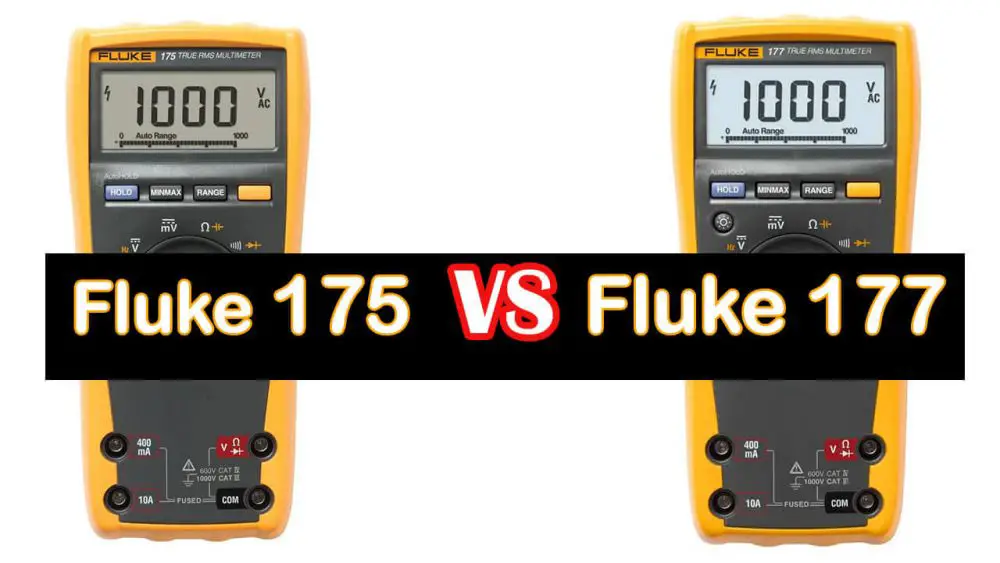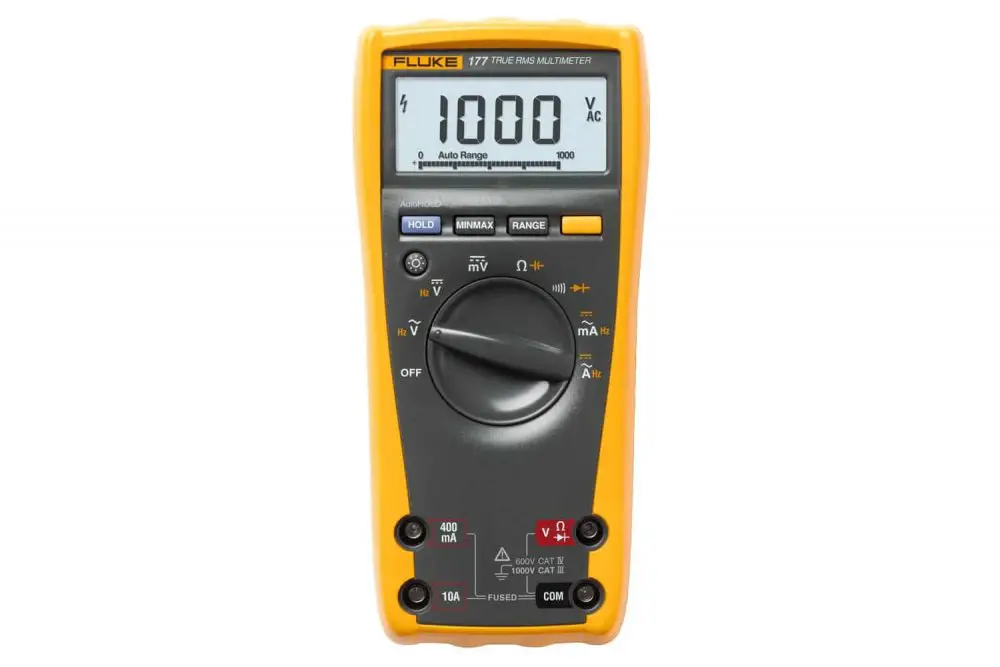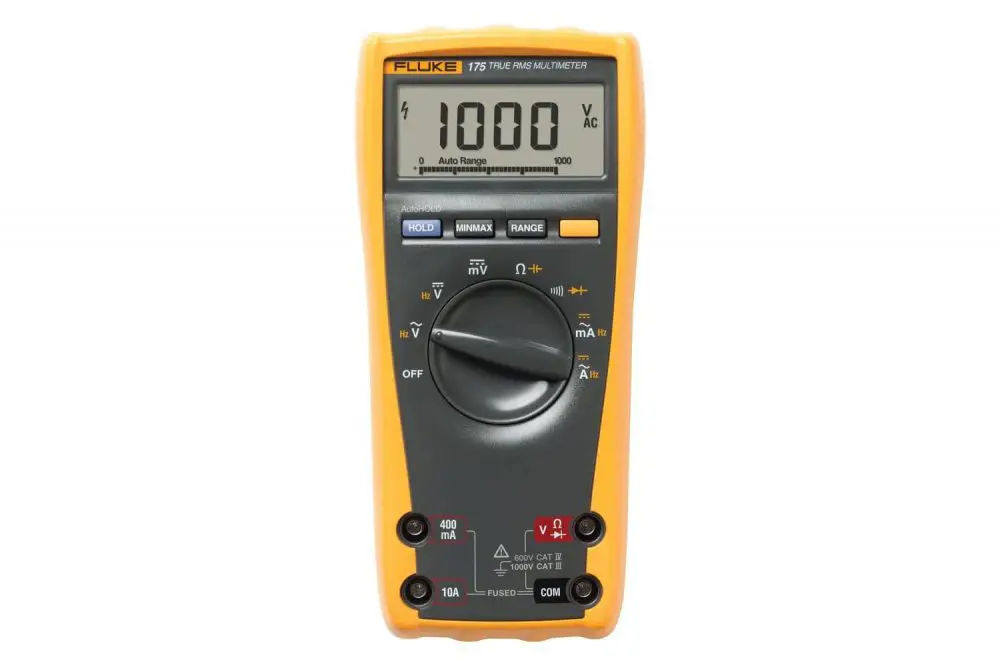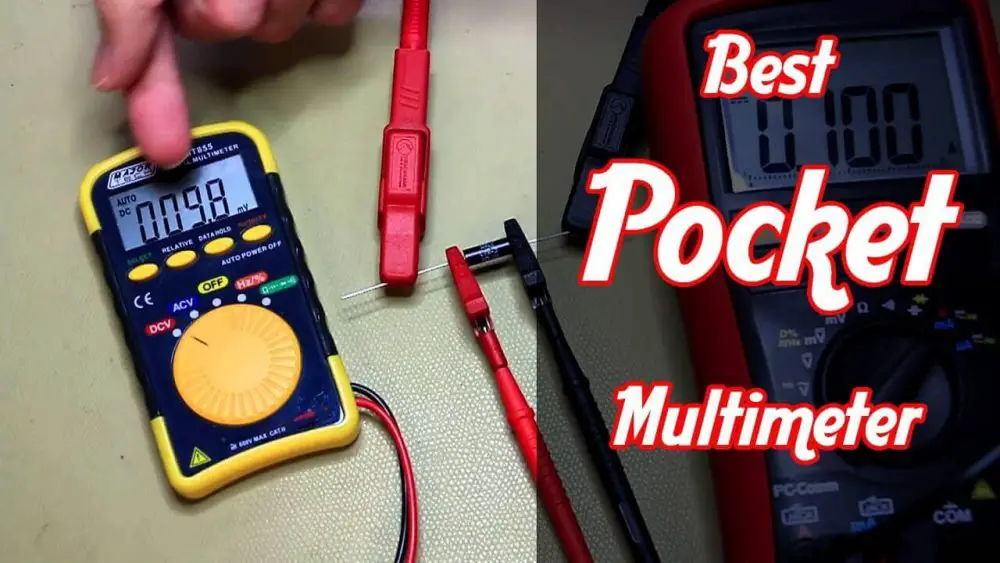Fluke 175 vs 177 – Which One is Best?
When it comes to choosing the perfect multimeter for your needs, it is important to do your research and compare various options. Two of the top multimeters on the market are the Fluke 175 and 177. Both of these multimeters provide a wide range of features and options, but they may not be the best fit for everyone. Before you decide which one to buy, you need to carefully consider your specific criteria and needs.
Most people have a multimeter in their home that they use for basic testing and maintenance. But what if you require something industrial-grade? Is there anything that can handle higher voltages or currents? Finding a suitable multimeter for your specific needs may be more challenging than you think. Even though there are various options, not all of them are suitable for the job. So how do you choose the best one?
The Fluke 175 and 177 are both popular digital multimeters for industrial applications. Both multimeters provide a wide range of functionality and are similar in terms of what they can perform. However, some differences between these two meters must be considered before making a decision.
9.7
- Safety rated CAT III 1000 V, CAT IV 600 V
- Measures AC and DC voltage to 1000 V
- Manual and automatic ranging
- Display Hold, Auto Hold, and Min/Max-average recording
- Delivers accurate True-RMS
9.5
- Safety rated CAT III 1000 V, CAT IV 600 V
- Includes ergonomic case
- Delivers accurate true-RMS
- Manual and automatic ranging
- Display Hold, Auto Hold, and Min/Max-average recording
Comparison Table Fluke 175 vs Fluke 177
| Features | Fluke 175 | Fluke 177 |
|---|---|---|
| Backlight | No | Yes |
| True RMS | Yes | Yes |
| DC Volt Accuracy | 0.15% | 0.09% |
| Weight | 420 g | 420 g |
| Warranty | Lifetime | Lifetime |
| Price | Check Price | Check Price |
The difference between Fluke 175 vs 177:
The main difference is that the Fluke 177 has a higher accuracy of 0.09 %, meanwhile, the Fluke 175 has a lower accuracy of 0.15 %. This may not appear to be much, but in the case of precision work, it can make all the difference.
True RMS:
The Fluke 175 and 177 digital multimeters provide true-RMS values for accurate measurements on nonlinear loads. These multimeters are ideal for usage in harsh conditions due to their industrial grade. Furthermore, they have been thoroughly tested and confirmed to provide a long-term comprehensive solution.
Safety Ratings:
The Fluke 175 and 177 are the most effective tools for CAT IV 600 V/CAT III 1000 V situations. They have been independently tested and proven to be safe to use while also providing the highest level of protection.
Warranty:
The Fluke 175 and 177 multimeters come with a lifetime warranty. This means that the manufacturer guarantees that buyers will be able to use the device for the rest of their lives. It is an excellent investment for people who require a multimeter for industrial or professional work because they know it will last a long time.
Battery:
The Fluke 175 and 177 digital multimeters are built to be quick, tough, and dependable. They both have a 9V battery installed, as well as a standard alkaline battery life of 200 hours. Without using a backlight.
Price:
When the prices of the two multimeters are compared, the Fluke 177 multimeter costs slightly more than the Fluke 175 multimeter. The difference, though, is small, only a few bucks. Finally, the Fluke 177 multimeter contains many features that differentiate it from the Fluke 175 multimeter.
Accuracy:
One of the most important is accuracy. And in this regard, the clear winner is Fluke 177. It has an accuracy rating of 0.05%, while the Fluke 175 has an accuracy rating of 0.1%. So if accuracy is your top priority, then you should go with the Fluke 177.
Build and Design:
Fluke’s 175 and 177 multimeters are two of the most popular on the market. They both include a strong case with an integrated holster, which increases the available protection. Their measurements are accurate, making them an excellent choice for anyone looking for a versatile meter.
Separately, Fluke 175 vs 177 reviews:
Fluke 175 True-RMS Digital Multimeter
The Fluke 175 True RMS Digital Multimeter provides the essential general-purpose capabilities required by professional technicians worldwide. This multimeter is perfect for use in labs, workshops, and repair shops. It includes many capabilities that allow it to be used for true RMS measurements, frequency measurements, and pulse measurements. In addition, the meters have an easy-to-read on-screen display. The Fluke 175 is a multimeter having safety ratings of CAT III 1000 V and CAT IV 600 V. This means it may be used in a range of environments and with a variety of equipment without posing a safety risk. Furthermore, the lifetime warranty guarantees that your investment will last for a long time. The ergonomic case with an integrated holster makes it easy to transport and protects the meter from damage. Finally, the device can be calibrated using the front-panel calibration feature.
Pros:
- It is one of the most reasonably priced multimeters with these features.
- High-quality design and construction.
- Protects your device from power surges
Cons:
- Insufficient brightness (backlight)
- It is not nearly as accurate as its successors(Fluke 177) in this line.
Fluke 177 True-RMS Digital Multimeter
The Fluke 177 digital multimeter is ideal for electricians and engineers. For its precision, reliability, and ease of use, it is an excellent choice for any job. It accurately detects current and voltage as well as frequency, capacitance, resistance, continuity, and diode readings due to its comprehensive set of functions. Its safety rated CAT III 1000 V, and CAT IV 600 V, making it ideal for a variety of applications. It is capable of handling whatever task you throw at it. It can perform routine maintenance and troubleshooting. It offers manual and automatic range, Display Hold, Auto Hold, and Min-Max average recording capabilities. It has a large backlit display that is easy to read in any lighting condition. This multimeter is also resistant to dust and water, making it excellent for use in a tough environment. Whether you’re repairing a complex circuit or simply keeping an eye on a routine general electric task.
Pros:
- Faster and more accurate testing
- It’s simple to calibrate, so you can obtain accurate results the first time.
- Backlight helps you read the display from a distance
Cons:
- There is no suitable battery connector.
- It is not possible to measure microamps.
FAQS:
The Fluke 177 multimeter is a high-quality meter made in the USA with imported parts. It is a great tool for technicians and engineers who need accurate measurements. The multimeter has a host of features that make it an essential tool in any toolkit.
The Fluke 177 is a multi-functional meter that offers a variety of features not found on the Fluke 175, making it an excellent choice for users who require more accuracy or additional functions. This meter can measure voltage, current, resistance, capacitance, and temperature with an accuracy of ±0.5% of the reading. Additionally, it has a built-in frequency counter and a time/date stamp.
No, only Fluke 179 in this Fluke 170 series contains a built-in thermometer.
A set of test leads is included with the Fluke 177 multimeter. These leads are usually enough for simple testing. If you require more advanced testing leads, you can purchase them separately. Because the multimeter has a wide range of capabilities, it can be utilized for several tasks.
Conclusion:
The Fluke 177 appears to be a superior option for those looking for high levels of accuracy and quality. If you’re looking for a less expensive solution that yet fits those requirements, the Fluke 175 is a good option. Both meters include a wide range of features and capabilities that make them suitable for a variety of applications.






